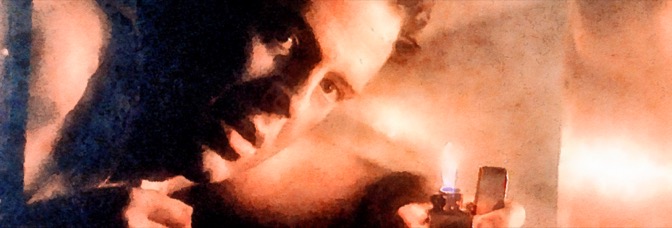Talking about Die Hard is complicated for lots of reasons. Besides Aliens, I think it’s the best popular action film ever made and, given when it came out, it’s very familiar. It shouldn’t be full of surprises and, in many ways, is not (though Theo and Karl having a bet on Takagi is something new to me. So instead, when watching it, it’s an appreciatory experience, rather than a–it’s still critical, but since I’m not looking to assign a value, since I know the value, I’m trying to understand how it works.
Die Hard features brutal, terrible villains. Not at all likable, but there’s almost a Helsinki syndrome with them. Theo’s funny, Karl’s crazy, Hans is great to watch. The bad guys prove more entertaining than the “good guys,” with the standard exceptions of Willis and Reginald VelJohnson. That level is always in the film, regardless of what number viewing a person is having. The “Die Hard on a dot dot dot” action movie, which has almost become every action movie (except, oddly the last two Die Hard sequels), ignores the most interesting parts of the film. Villains who are fun to watch not because of their villainy, but because the characters are bad, but entertaining. There’s also the question of the short present action. The movie starts with Willis getting there and ends with him leaving. The situation (Willis visiting estranged wife) provides for a perfect exploration of the characters, without needless exposition.
But there’s also the developing relationships through the film. The dumb cop eventually becoming… friendly (only after the dumber FBI agents show up). McTiernan directs a confined story better than anyone I can think of–because he inserts the viewer in the building with the characters… But the viewer isn’t tied down to Willis, the viewer gets to move….
There’s an element of privilege to the film. Lots of the moments Willis gets–the quiet ones–are privileged moments (which makes the lack of respect for his acting at this point in his career a tad surprising), but they don’t compare to some of the other ones. Like when Bedelia sees her practically demolished husband at the end. Just her expression brings Die Hard to a level of reality, even with the jokes, even with explosions, very few films–none featuring off-duty cops with automatic weapons–ever reach. The film encompasses the viewer in a singular way, something none of the imitators (or sequels) could duplicate.
Obviously, Rickman is outstanding and Willis is great–the most interesting thing about the two is the lack of desperate struggle. By giving Willis Alexander Godunov as a nemesis, his relationship with Rickman becomes far more interesting. Godunov is, of course, a joy to watch.
I think the only acting surprise was De’voreaux White, who I never think about doing a great job, but does.
McTiernan’s never duplicated the quality, influence or depth of Die Hard–the understanding of people relating to one another–but then, screenwriters Jeb Stuart and Steven E. de Souza have never even come close… because another sterling aspect of the film is the conversations between the characters.
I didn’t do a particularly good job with this post but I don’t have to. Because Die Hard is, to quote a friend (on a different subject), undeniable. And because, once the experience is over… it’s hard to talk about.

Leave a Reply